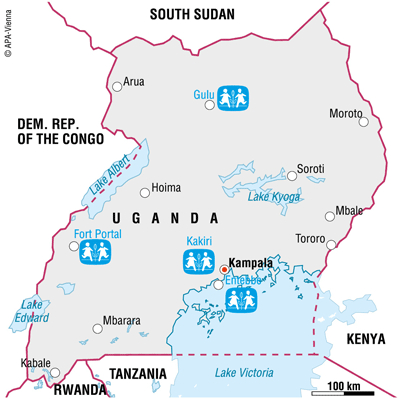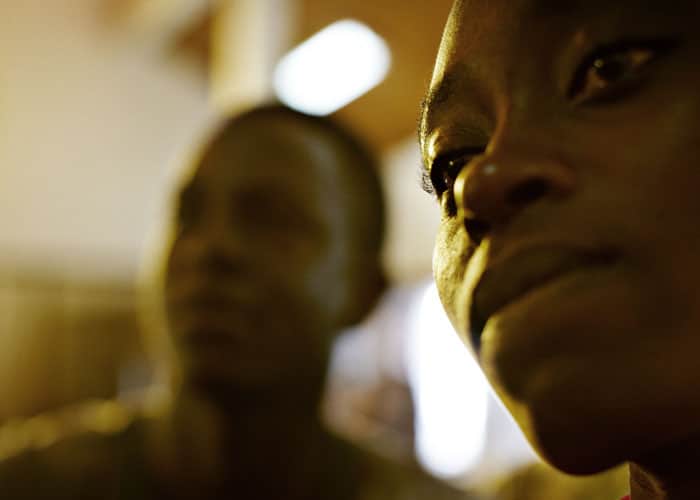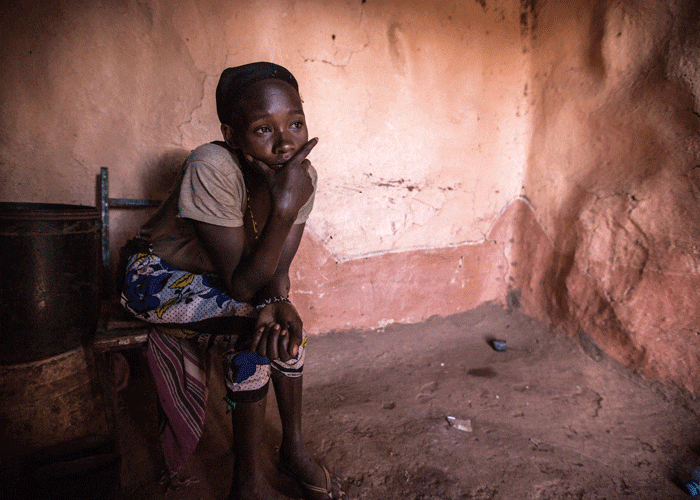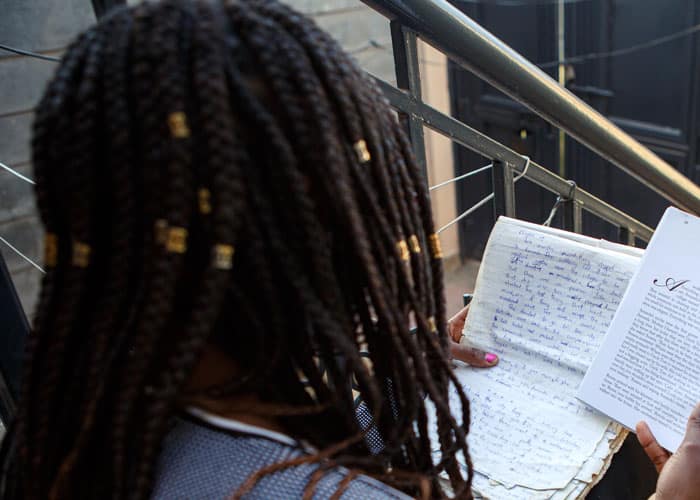
Vi er i Uganda
Poverty and instability affects families and children
The country has suffered years of violent conflict and political instability. Although in general terms, the economy has improved in recent years since the discovery of oil and gas, it is still volatile, and the distribution of wealth remains very unequal.
Nearly 20 per cent of people still live in poverty. Many of these live in rural areas. They mostly survive off farming but are affected by climate changes and they often produce less food than they need to feed their families. Malnutrition is therefore a problem: 38 per cent of children under the age of five suffer from chronic hunger and are not growing as they should.
Vulnerable children and families often have no governmental safety net to help them when they don't have a home or enough money for food. Many turn to non-governmental organisations for support at such critical times.
Many families lack access to health care
Pregnant women, mothers and young children are severely affected by the lack of antenatal and postnatal care. As a result the maternal and infant mortality rates remain among some of the highest in the world.
The HIV/AIDS rate, at 7.3 per cent, is also unusually high. There has been some progress: a fall in the number of people with HIV/AIDS and an increase in the number of people receiving antiretroviral therapy. However, more needs to be done to prevent the infection of children and to raise awareness and reduce the stigma associated with having HIV/AIDS.
Children need protection
There are 19.5 million children under the age of 18; around 2.7 million of them have no parental care. Children's rights are not sufficiently protected: one in four is forced to work and many don't go to school or have access to health care.
Although the number of children who start school is high, the quality of the education needs to be improved and only one in four actually finish primary school. Girls are more likely to drop out than boys. Many stop going to school because parents can't afford the fees or the extra costs such as books, school supplies and uniforms.
HIV/AIDS has had a devastating effect on Ugandan children: due to the disease one million have lost parental care and an estimated 96,000 under the age of 14 years have HIV/AIDS. Many more are directly affected by HIV/AIDS as family members become too unwell to care for them. When a parent has HIV/AIDS they are often too ill to work, forcing children to take on the responsibility of looking after and feeding the family. In the majority of cases, this means the child has to stop going to school.
SOS Children's Villages in Uganda
Strengthening Families: We work with local agencies and the community to support families who are at risk of breaking down. Each family needs different help in order to stay together. We also run workshops on parenting skills and children’s rights. In 2015 we supported around 8,000 people.
Care in families: Children who have lost parental care find a new home in an SOS family. Brothers and sisters grow up together and are looked after by an SOS mother. Wherever possible, we work with the families of origin so that children can return to live with them.
Support for young people: The high unemployment rate makes it difficult for young people to become independent. We help young people gain further training and a youth leader supports them while they look for work.
Education: Not many children finish primary school. For this reason we run four kindergartens for young children, primary schools in Gulu and Kakiri and a secondary school in Kakiri.
Medical care: Our three medical centres provide antenatal and postnatal care, and treat malnutrition and basic illnesses such as malaria, diabetes, and high blood pressure. We test for HIV and offer counselling and treatment to those affected by HIV/AIDS. Our mobile clinics reach out to remote communities, where no other health care is available.
Advocacy: We work closely with local organisations and government agencies to improve the lives of vulnerable children. Children and young people are encouraged to take an active part in this process.
Website of SOS Children's Villages Uganda
(available in English)


